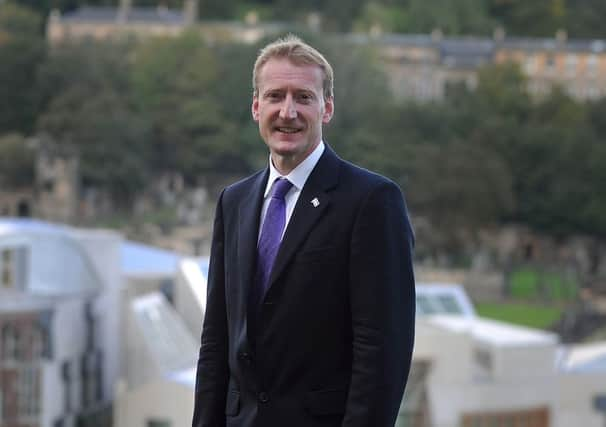Tavish Scott: Who says we can not expect privacy?


A gift that did not make this Christmas but will be here in 2014 is Apple’s iWatch. A curved glass, connected wristwatch which will make phone calls, pay for coffee and receive texts and emails, iWatch may have a built-in camera, too.
Just how many cameras do we all need? As the pixel becomes ever more mega, the mobile phone makes the traditional camera a tool that only sports photographers and the paparazzi will use. Digital technology means the world is awash with cheap, effective cameras. A billion were built into mobiles and tablets and sold in 2012. So what of this constantly monitored world we now live in? Does it worry you that the act of walking down the street or standing at the bus stop can now be recorded? Recorded not just by the state, through city centre CCTV images, but by your neighbour for his or her own use. The delete button still matters. A billion new cameras in 2012 took countless photos of absolutely no value or merit whatsoever. But it is vaguely disconcerting to imagine people at Waverley Station taking pictures of everyone.
Advertisement
Hide AdAdvertisement
Hide AdGoogle is on the cusp of launching Google Glass. This will be worn as a headband, taking pictures and allowing the wearer to see data on a tiny screen just above the right eye. There are upsides. It is thought that wearable cameras could be especially beneficial in terms of caring for the elderly. Doctors suggest people with impaired memories could use a wearable camera to review a photo stream or that morning’s conversation. That would make coping with dementia easier.
Police across the UK have been using body-mounted cameras for some time. If the London coppers who stitched up the former government minister Andrew Mitchell had been wearing a camera and microphones, “Plebgate” would never have happened. Such use has been trailed by Scottish police in Aberdeen and Paisley. The results are positive, having been welcomed both by the police and civil rights advocates. The evidence when used in court has helped speed up judicial proceedings, complaints against the police are more easily determined and there is limited evidence of crime reduction.
But wearable cameras raise fundamental questions of personal liberty. Technology will mean instant face recognition. Will Google, Sony or Microsoft’s databases retain such information, and to whose benefit? Who protects your privacy from companies and governments? Facebook founder Mark Zuckerberg has claimed privacy is no longer a social norm. What gives him the right to decide?
Maybe such toys will never catch on but if they do, your privacy is an issue. How does regulation protect privacy? Time for a debate.